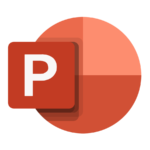 Several weeks ago, Google announced it would shut down its popular RSS service Google Reader on July 1, leading to a mad scramble for alternatives. Some people remarked on how the replacements could not quite replicate their familiar workflow, forcing them to change their news-seeking routines. Others could not even sign up, as the flood of traffic overloaded the servers of a few services.
Several weeks ago, Google announced it would shut down its popular RSS service Google Reader on July 1, leading to a mad scramble for alternatives. Some people remarked on how the replacements could not quite replicate their familiar workflow, forcing them to change their news-seeking routines. Others could not even sign up, as the flood of traffic overloaded the servers of a few services.
But Nicholas Carr, author of The Shallows, made a larger observation about this episode and how it demonstrates a major shift in the culture of the web in recent years.
The distinction is between tools (such as RSS) and platforms (such as Google Reader). A tool, Carr explains, is simple and doesn’t require any “broader entanglement.” This was the predominant atmosphere in the earlier days of the web.
But today, companies like Google, Facebook and Twitter require us to join a larger platform in order to use the tools we want. A diverse array of related products and services all come together under one brand and the service becomes a one-stop shop; a destination over which the end users have little to no real control (as demonstrated by the frustration over Google killing off Reader to focus its efforts on other services).
Carr explained in detail how he conceives of tools and platforms:
Tools tend to be simple things. They help you get some particular task done — they lend you their power when you need it — but they otherwise pretty much stay out of your life. They’re like little amplifiers of the self. Platforms are more complicated. They may help you do some of the same things that tools help you do, but, in granting that assistance, they demand that you become entangled in a bigger scheme, a scheme of someone else’s devising. Rarely do you know fully what the scheme consists of, what its ends are, or how it will develop in the future. A tool holds no secrets; a platform holds many. You use a tool; a platform uses you.
A possible reaction to Carr’s warning is to stay away from platforms entirely, due to their addictive nature and lack of transparency over the future. (And Carr himself is determined to keep bypassing the platforms.)
Another is to step back and determine how heavily you rely on one platform–for example, Google for email, calendars, documents and cloud storage–and seek out alternatives in case that provider makes major changes in the future that disrupt your way of doing things.
It’s easy to take Carr’s point in the context of something like Facebook, a platform that can easily entangle us without providing much significant value.
What about the others on which we rely so heavily? Microsoft Office is a platform. Could we realistically bypass it and use a tool for creating documents, spreadsheets and presentations? At the very least this would require a higher level of technical knowledge and would be much more time-consuming than succumbing to the platform. So are some platforms more dangerous than others, then? Is Dropbox a platform? Skype? If I’m typing up this post and surfing the web in my Chrome browser, am I becoming more entangled in Google’s platform? Are there any tools left today?
And more importantly, should I be worried?
What do you think about the shift towards platforms on the web? Does the convenience of having lots of services under one roof make up for having to abide by the provider’s constantly-shifting rules?




I think one big thing Carr is missing is that platforms allow users and 3rd parties to build new services upon them, and create lots of extra value for everyone by doing so. So, with Facebook, you get a whole new gaming industry, or things like the Causes app. With Apple, you’ve got the whole universe of podcasting. With Amazon, the resellers, or more importantly, everything that runs on their AWS/EC2 cloud.
With Google…. not so much, and one of the ways Google has failed to keep up with Facebook and Apple is in not figuring out how to combine all of their various services into a coherent and easily interoperable social platform that others can build on top of.
In this way Reader can sort of be called a platform (lots of mobile RSS readers used it to sync data), but not really, since they didn’t really encourage this kind of use or try to figure out how to monetize it. They also really, really failed to see how Reader and the Reader userbase could fruitfully combine with Plus to seed it with shares and content. They had a really valuable user base of influencers there, and instead of taking advantage of it and giving us the tools to build a bridge between the two tools, they just tried to push all of us to Plus, even though it lacked the functionality we were there for to begin with.
Great points. I remember a couple of years ago Google Reader did have several social features: friending, following, “liking” links. Not only did they have a large base of influencers, but one that was already doing all of the things G+ would want them to do. It’s really surprising they killed these features off rather than trying to create some sort of bridge between the tools.
I’m curious if Google will ever be able combine its core services into a coherent platform. Every time I head over to Plus (about once every few months) it looks a lot different but it has never felt closely integrated with any other Google offering. And Google was very slow to let any third party apps access the Plus API.